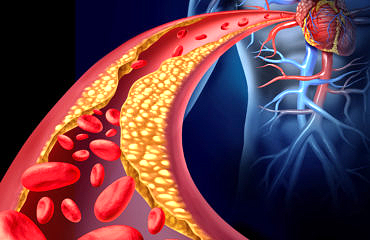3 COMMON WEIGHT LOSS MYTHS
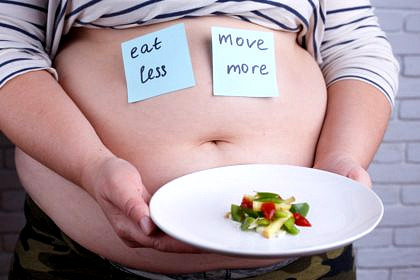
There are so many weight loss myths, lies and misconceptions out there and I used to believe most of them. Despite following the advice I was given about weight loss, I still ended up gaining 70 pounds and struggled to get it off. It wasn’t until I was able to bust these common weight loss myths that I was able to lose the weight and keep it off. In this article, I am going to help you clear up some confusion and concerns that you may have about weight loss.
Obesity is a major issue that affects about two-thirds of the U.S. population. As a black female, I was shocked to learn that 4 out of 5 African-American women are either overweight or obese, a rate higher than any other group. These numbers are alarming and it is obvious that what we are being taught is not working!
Here are the top 3 most common weight loss myths.
Weight Loss Myth #1: Eat less and exercise more
If that were all it took to lose weight then weight loss would be simple and you wouldn’t be reading this right now. So myth number one is generally saying you are greedy, lazy and all you need to do is eat less and exercise more. If you are reading this, chances are you are or have exercised, you have tried eating less, and IT DIDN’T WORK! You may have lost some weight initially, but what happened when you started eating “normally” again? The weight came back and they brought friends! It gets worse when you repeat the cycle over and over again.
Calorie restriction never works for long term solutions. Most of the weight loss is muscle, not fat, and your metabolism gradually gets slower and slower. For calorie restriction to work, you have to continuously restrict more calories in order to lose more weight.
You have also been told that too much TV and computer time is what is making you fat, and you need to get off your butt and exercise more. The truth is, exercise doesn’t make you lose fat. The ability to burn fat makes you lose fat. And unfortunately your body may have lost the ability to burn fat for energy.
Another thing about calories. It’s not just about the number of calories, but the quality of calories. Many of the “low-calorie foods you see on the grocery shelves are typically unhealthy and lack nutrients. They are mainly loaded with chemicals and dead ingredients that harm the body more than nourish the body. So it’s really about the quality of the calories and not the quantity.
Weight Loss Myth #2: Avoid fat
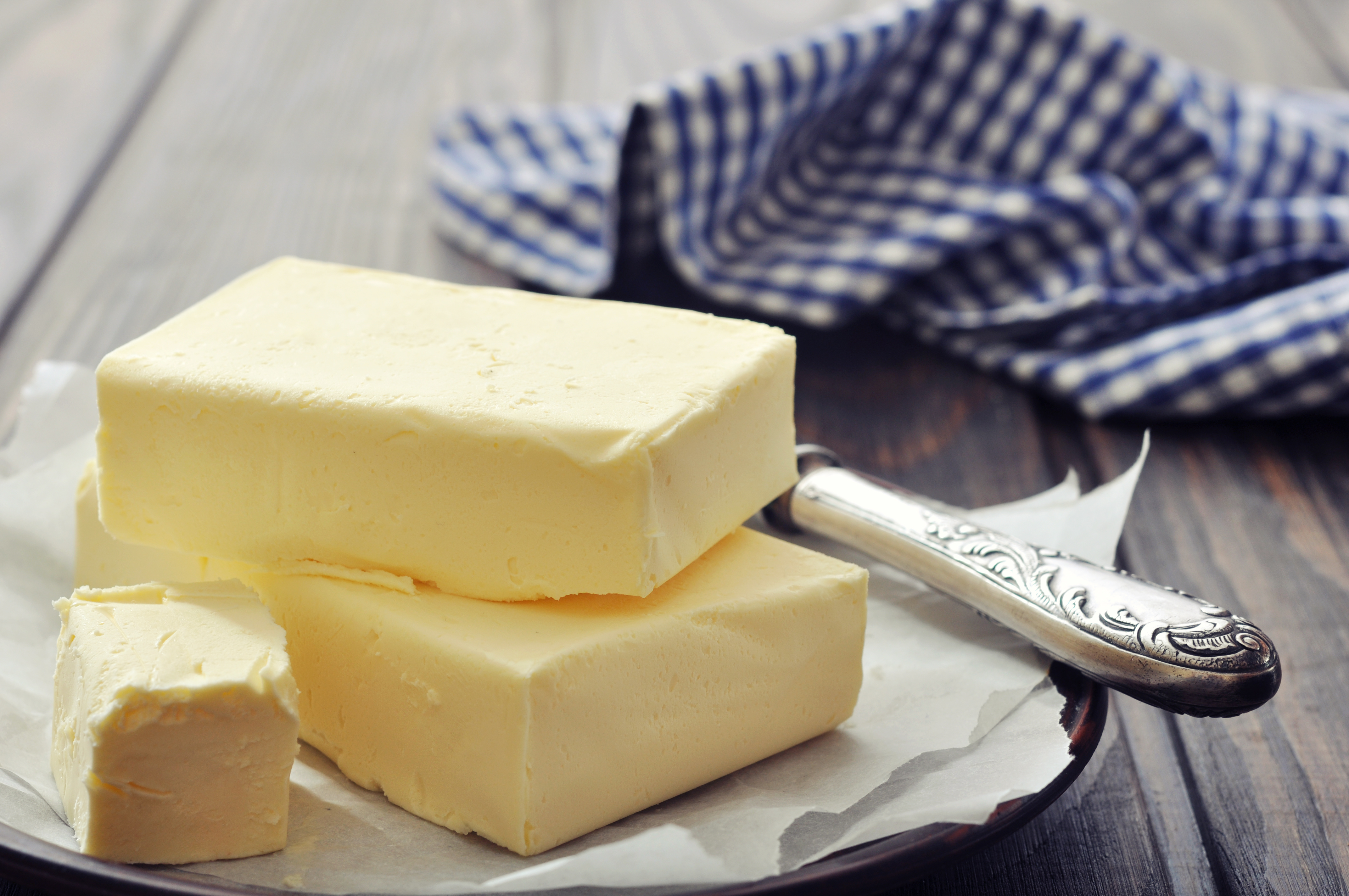
Fat doesn’t make you fat. It’s the inability to burn fat that makes you fat. Good fats help your body burn fat. Vegetable oils are the bad guys, not the saturated fats. Saturated fats and cholesterol are the good guys. Numerous studies show bad fats cause inflammation of the cell membrane which leads to type 2 diabetes. A University of Pittsburgh study indicated that frequent users of partially hydrogenated vegetable oils had higher insulin levels. A Harvard study that showed a diet high in saturated fat from meats and diary improved diabetes three fold.
Cholesterol is your friend. Every cell in your body needs it. Deficiencies can lead to depression, cancer, low libido and can make you more susceptible to strokes. Cholesterol acts as an antioxidant, protects your skin from damage, fights infection, and supports glucose metabolism.
We live in such a fat-phobic society. Look on our grocery shelves and all we see is low-fat this and fat-free that. For the last twenty years, we have been told to avoid saturated fat like the plague. Despite these recommendations, people still gain weight or have trouble losing weight, crave sugar, have decreased energy and enthusiasm, and suffer from a long list of health complications.
Personally and clinically, I have witnessed how increasing good fats has helped people lose weight, gain energy, and reverse chronic symptoms.
You can be overweight and fat deficient. Without the proper fats in your diet, your weight loss and health goals can be a frustrating, uphill battle.
It may be hard to comprehend that you need fat to lose fat. But saturated fat reduces cravings and helps you feel full. You don’t feel denied, which is a common problem in many weight loss programs. When you are not eating fat, you fill up with empty calories in foods, such as diet sodas and other fat-free and low-fat products that are loaded with additives and other toxic ingredients, which further deteriorate the body.
Becoming an effective fat burner involves balancing your hormones and getting your body healthy, because only healthy bodies burn fat. Of all of the myths, I believe this is the main that is the most understood.
Don’t be afraid of good fats, such as olive oil, coconut oil, and butter. These fats are whole foods that nourish your cells. Your brain and nerve cells depend on fat and cholesterol to be healthy. In clinical practice, I have found that there is a connection between neurotoxic illness such as Alzheimer’s and multiple sclerosis and fat deficiency. This is why I believe that this is one of the most dangerous myths out there.
Weight Loss Myth #3: Eat more whole grains
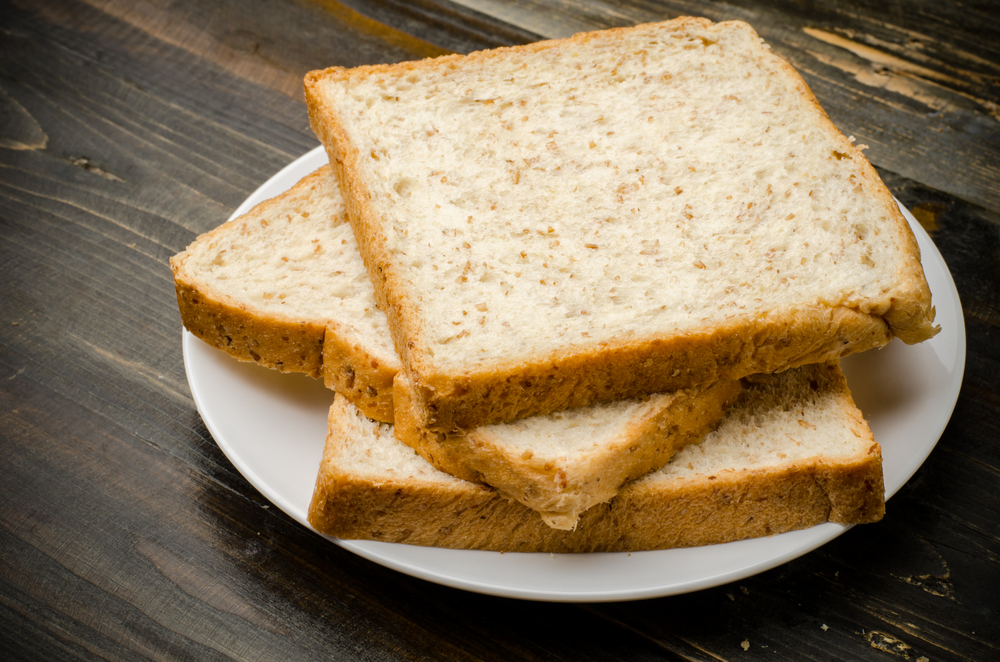
We have been told to avoid saturated fats and cholesterol and to eat our whole grains every day. But since we have been given that advice, obesity and heart disease has become an epidemic in this country. Popular books such as Wheat Belly by William Davis, MD and Grain Brain by David Perlmutter have made the connection between grains and chronic disease, including infertility, allergies, osteoporosis, depression, dementia, headaches, and anxiety.
I had a love affair with grains, so busting this myth personally changed my life! Seventy pounds ago, I was faithfully eating my oatmeal for breakfast and frequently enjoyed beans or brown rice for lunch and dinner. I even made my own whole grain bread! I was also avoiding all the whites (white flour, white sugar, and white rice), and the pounds were not coming off fast enough. In other words, this myth not only made me fat, it kept me fat! Think about it. Why do you think they feed grains to chickens and cows? It’s to help them gain weight faster! And it does the same thing to humans too, especially if you have sugar metabolism issues.
Whole grains raise glucose as much or more than pure sugar! Did you know that 2 slices of whole wheat toast increases your blood sugar more than five to six teaspoons of pure sugar. That is the same as drinking a whole can of soda.
Reducing grains played an essential role in normalizing my glucose and insulin levels, as well as losing my weight, clearing my skin, stabilizing my mood, improving my sleep, and eliminating my headaches. Decreasing carbohydrate intake reduced fat that is normally stored and allowed my body to use fat instead of glucose for energy. With the increase of good fats, I noticed that my appetite was satisfied, and many times, I did not feel hungry throughout the day.
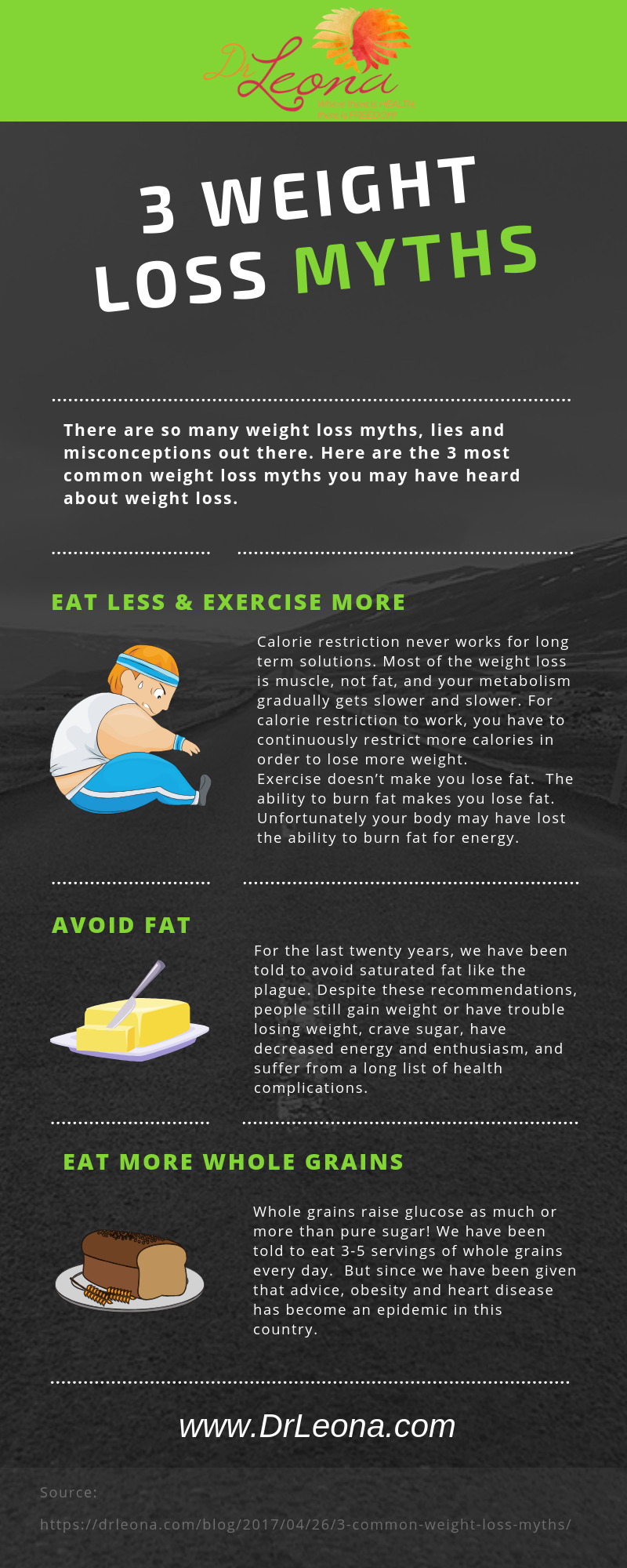
If you are struggling with weight loss resistance and would like to learn more, go to TheWeightlossBreakthrough.com to get access to a free MasterClass. You can also go to TalkToDrLeona.com to schedule a free 30 minute breakthrough call to see if you qualify for any of our programs.


